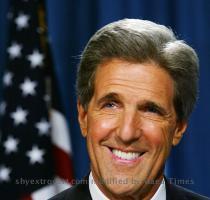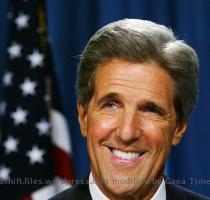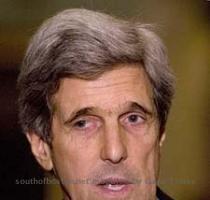US envoy says many billions will be needed to rebuild Pakistan after flooding
By Edith M. Lederer, APThursday, August 19, 2010
US envoy says billions needed for Pakistan
UNITED NATIONS — A top U.S. envoy said Thursday that “many billions” of dollars will be needed to rebuild Pakistan after the worst flooding in living memory has left one-fifth of the country inundated with water and devastated the economy.
Richard Holbrooke, the U.S. special representative for Pakistan and Afghanistan, said the United States was the first and largest contributor, and he challenged other countries, especially Pakistan’s close ally China, to “step up to the plate.”
Pakistan’s Foreign Minister Shah Mahmood Qureshi said the Chinese have increased their cash assistance, supplied relief goods and taken responsibility for providing food, water and shelter to some 27,000 people in an inaccessible area in the north “so if you put this all together, it’s substantial.”
Both spoke at the Asia Society in New York ahead of a high-level meeting of the U.N. General Assembly later Thursday to spotlight the South Asian country’s immediate need for $460 million to provide food, shelter and clean water for 6 million to 8 million flood victims for the next three months. The U.N. also wants to spotlight the enormity of the disaster, which is bigger than the 2004 Asian tsunami, the 2005 Pakistan earthquake, and this year’s Haiti earthquake, yet has attracted far less in donations.
Qureshi said Pakistan is facing one of its greatest challenges — tens of thousands of villages submerged, around 1,500 people killed, and more than 20 million affected — and needs international help because its own resources are insufficient.
“We’ve never seen anything like this before,” he said at the Asia Society, noting that only three weeks before the floods began Pakistan was trying to cope with a water shortage. “The economic cost is huge.”
The Pakistani government has been strongly criticized for failing to respond quickly to the floods, and Qureshi acknowledged the skepticism and criticism.
“Initially there was shock, paralysis, but we are out of it now,” he said. “We are getting our acts together. … This was a mega-flood, so as people are becoming more aware the response has improved, and it will continue to improve in the days to come.”
Qureshi said he wants to tell the world “what a serious challenge Pakistan is facing at a time when … a democratic, elected government … has succeeded in building a consensus in Pakistan against extremism and terrorism.”
He said it was unfortunate that “this calamity struck” in the Swat valley, where life was just returning to normal after a successful government campaign against extremists and terrorists, and in south Punjab, where a similar campaign was under way.
Holbrooke said it’s impossible to assess whether the extremists or al-Qaida elements are taking advantage of the floods because “we can’t even get in there,”
“The water has affected everyone. It’s an equal opportunity disaster, and military operations have effectively faded away,” he told a small group of reporters after the Asia Society event.
Qureshi said Pakistan has not reduced its military forces fighting the extremists or terrorists, but he said there will now be an additional challenge of dealing with the floods and rebuilding water-ravaged areas.
Famed Pakistani musician Salman Ahmad stressed that 100 million of Pakistan’s 175 million people are under 25 and they are skeptical and “feel abandoned by the world.”
“All you need to do right now is to give hope to those young people … who have two possible futures, one of following their dreams, the other of being sucked into extremism,” he said at the Asia Society.
For the United States, Pakistan is vital for its strategic goals of defeating militancy and stabilizing neighboring Afghanistan, so its troops can one day withdraw. Washington has already committed to spending $7.5 billion over the next five years in the country.
U.S. Senator John Kerry, who is visiting Pakistan, said Thursday that the U.S. will increase its aid to flood victims to $150 million, stressing that Washington did not want Islamist extremism to increase on the back of the crisis.
At the Asia Society, the Asian Development Bank said it will earmark at least $2 billion for Pakistan’s reconstruction over the next two years. Billionaire financier George Soros announced that he has given his Open Society Institute in Pakistan an extra $5 million to help the country’s civil society sector assist flood victims.
Tags: Asia, Emergency Management, Floods, Helping-pakistan, John Kerry, North America, Pakistan, Radicalism, South Asia, United Nations, United States



